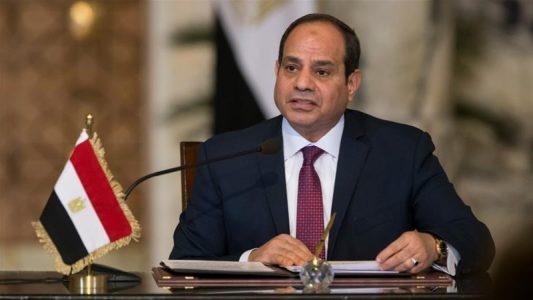
Egyptian authorities extend state of emergency
Egypt’s President Abdel Fattah al-Sisi extended a state of emergency declared after twin church bombings in April by Islamic State militants, in a decree issued in the official gazette on Thursday.
The renewed three-month state of emergency will start on July 10, according to the decree.
Parliament approved the initial state of emergency in April after the two church bombings claimed by the Islamic State (IS) group that killed at least 45 people.
The group said it was behind the bombings in the cities of Tanta and Alexandria, and it threatened further attacks against Egypt’s Coptic Christian minority.
IS militants also claimed a Cairo church bombing in December that killed 29 people.
The emergency law expands police powers of arrest, surveillance and seizures and can limit freedom of movement.
Egyptians lived in a permanent state of emergency for more than 30 years under former president Hosni Mubarak, declared after the assassination of his predecessor Anwar al-Sadat in 1981 and continuously extended.
It gave the president extensive power to crack down on dissent, including detention of political opponents without charge and trials by special courts with no right to appeal.
It was not lifted until 2012, when protesters in post-revolution Egypt forced the then-ruling military junta to cancel it. (Mubarak was driven from office the previous year).
Following Morsi’s overthrow by Sisi, then an army chief, in 2013, a state of emergency was declared for a month after clashes between police and Islamist protesters that killed hundreds and after Islamist mobs attacked Christian properties.
Part of North Sinai in the east of the country where the IS’s Egyptian affiliate is based has remained under a state of emergency.
The new constitution, introduced in 2014, places a formal time limit on the emergency powers. The president can declare a state of emergency for three months (which Sisi did on Sunday night), which then has to be ratified by parliament. After that it can only be extended once, for another three months.
However, the government can renew the state of emergency almost perpetually by allowing a few days between each six-month period. It’s already done in north Sinai where the Egyptian army is fighting Islamic State militants.
But even before the current state of emergency, Egyptian authorities had plenty of powers to arrest and detain. Students protesting on campus, journalists, political opponents – all have tenuously been charged with belonging to the Muslim Brotherhood, which Egypt designates as a terrorist organisation.
Under the draconian protest law and the terrorism law, detention can be almost indefinite.
For criminal cases, police have a maximum of four days detention before they have to present legal charges. With protestors, however, that extends to 135 days. The prosecutor can then ask for a renewal of the detention without going to trial or presenting evidence.
What differs with this state of emergency, however, is that the president – or those acting on his behalf – can refer civilians to State Security emergency courts that have a fast-track prosecution channel and no appeal process afterwards.
Before, prisoners could be detained indefinitely with no charges or made to disappear until they confess in front of a military court. Now they can quickly be sentenced by a special court and cannot argue against the ruling.
Moreover, Sisi has the power to amend, annul, suspend or order a retrial on any decision taken by the emergency courts. Any court ruling needs his approval.
Source: Middle East Eye





